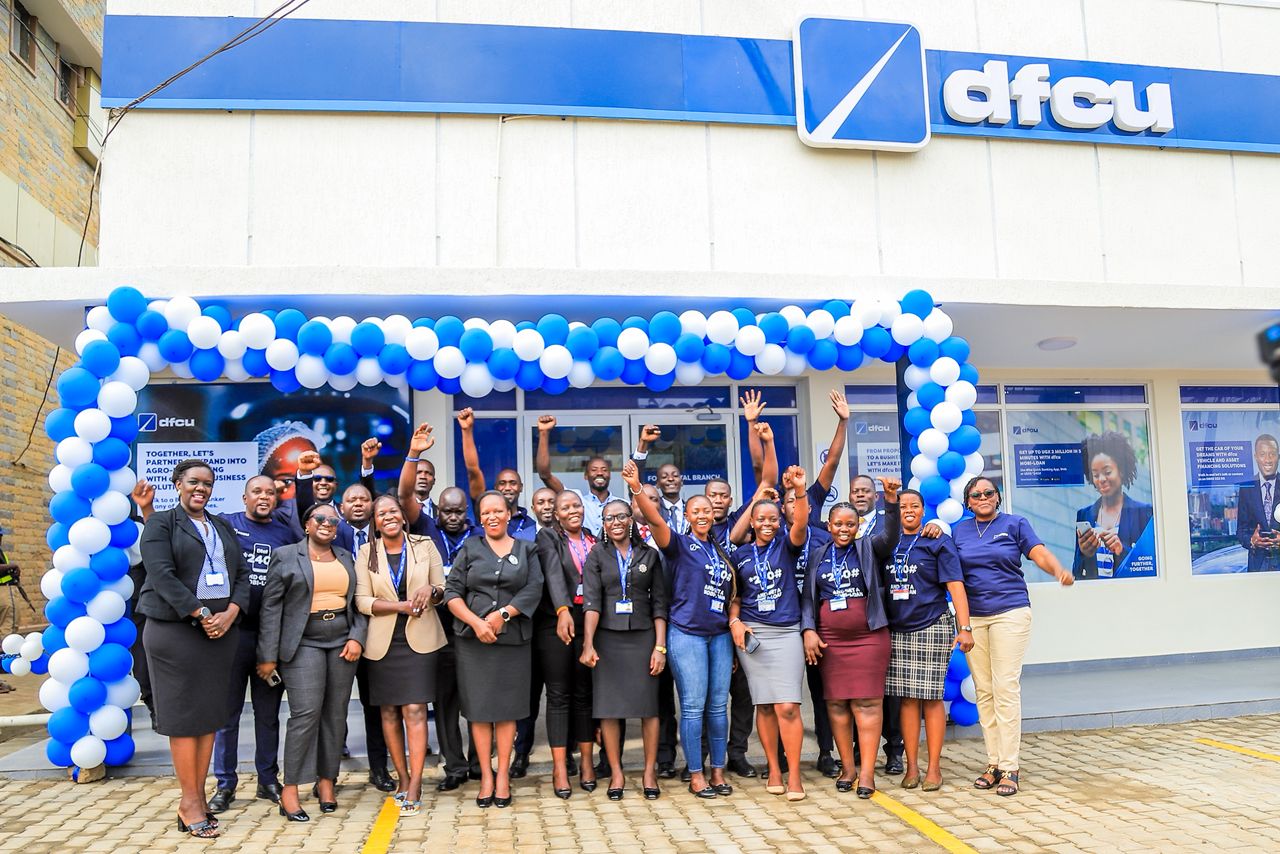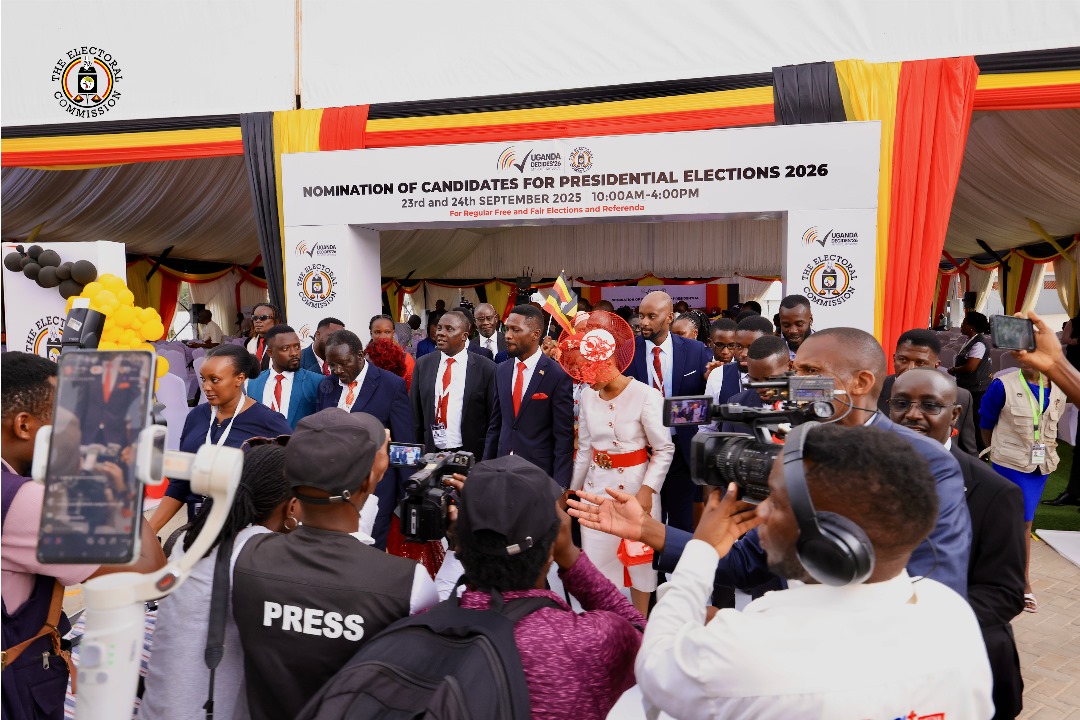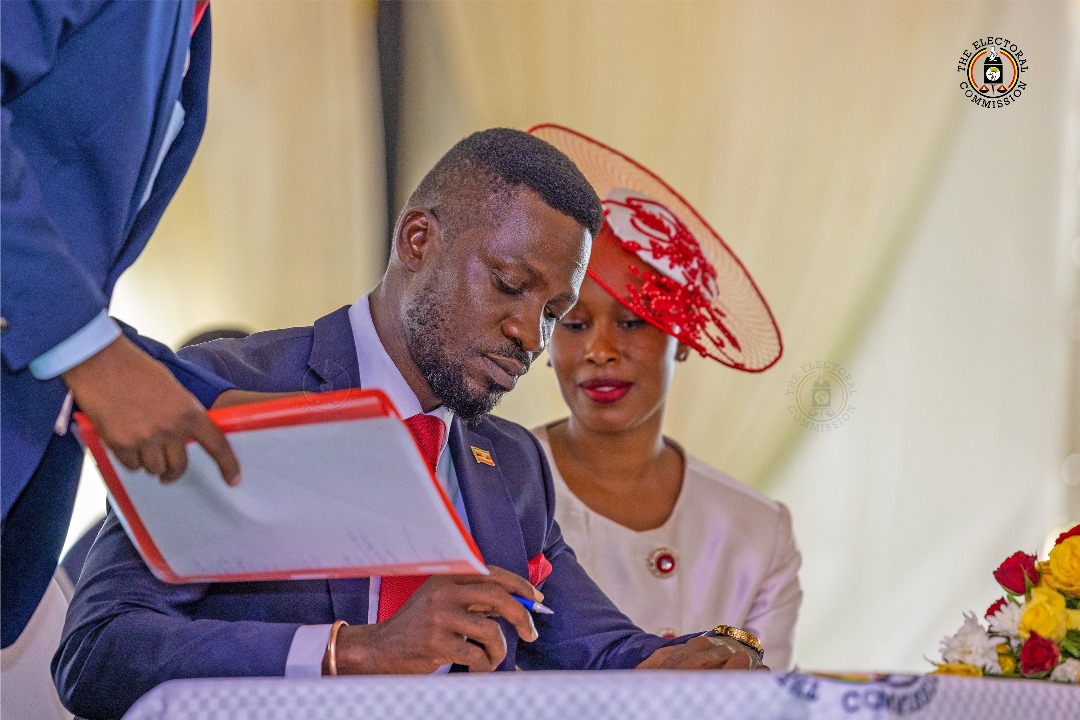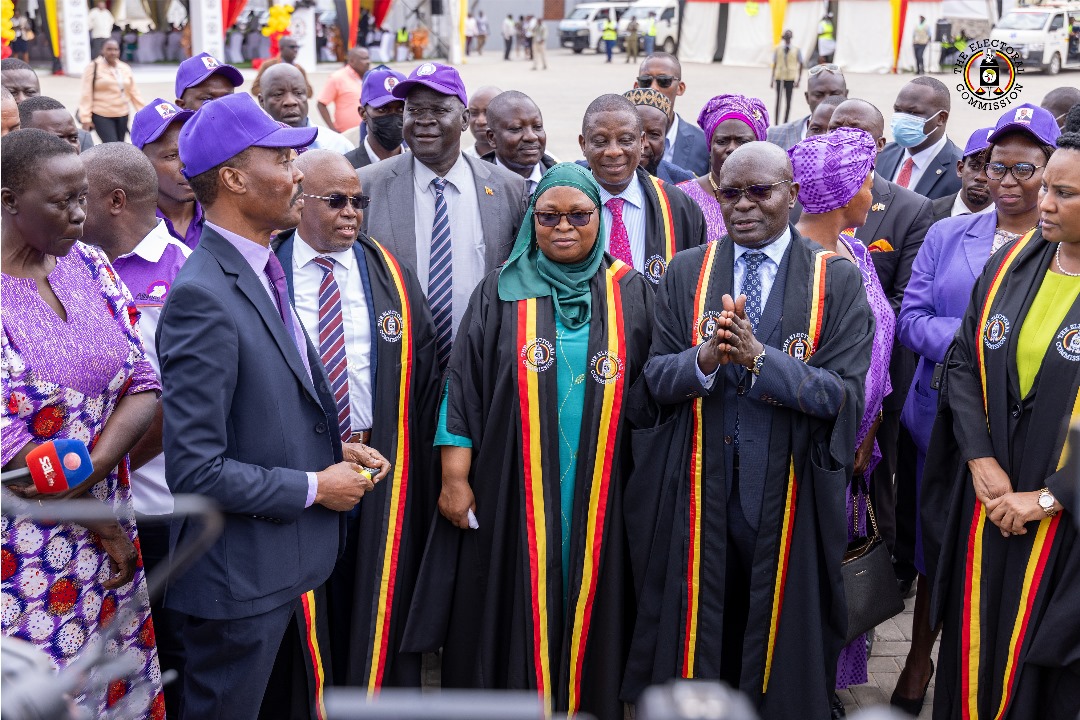My Prostate Journey from Nawaka to Uro-Care Hospital Nansana
My prostate journey to Uro-Care Hospital was long and arduous. It began in May 2023 when I woke up to pass urine and I couldn't. Even before, I had been passing urine several times at night, which was cumbersome. During the day urine would not go beyond my legs and sometimes came out uncontrollably.
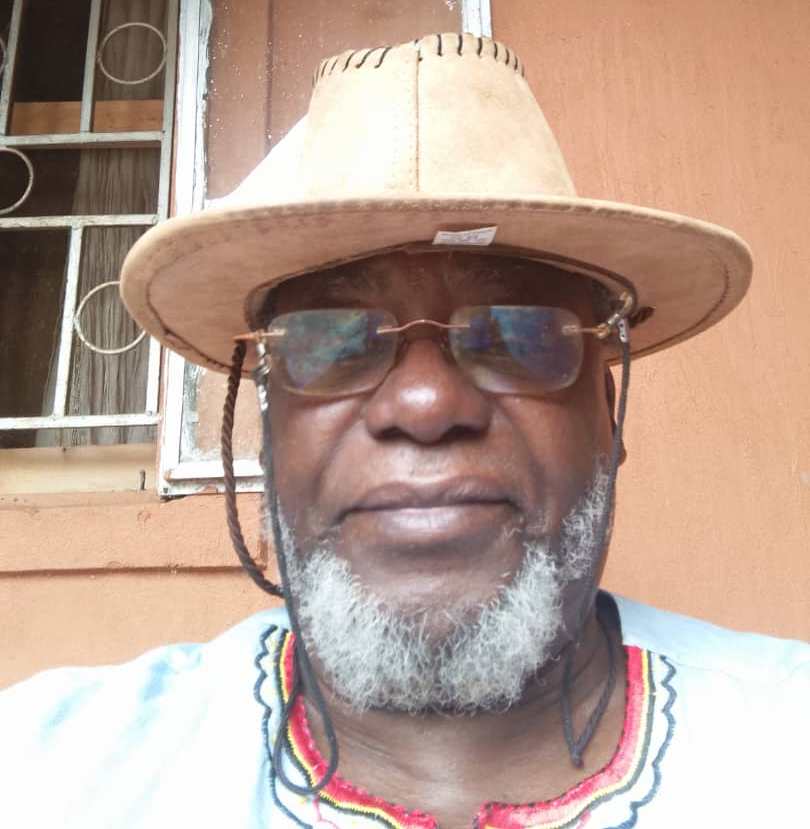
By Oweyegha-Afunaduula
First, let me thank God who knew me long before I was formed in the womb of my mother in 1949; has preserved me for the last 76 years; is the only explanation of who I am and why I continue to live and persist on Earth despite all kinds of odds; and gave me the gift of writing and a photographic mind that enables me to remember even the smallest details along my life’s trajectory.
Second, I thank my parents, the late Charles Afunaduula Ovuma Ngobi Isabirye (1923-2007) and the late Stephanie Esteri Kyabwe Nawamwena Naigaga Wabiseatyo (1932-2016) who provided me with quality parental care and tirelessly worked together to ensure that I survived beyond them despite my sickly nature since my birth on 27 July 1949.
Third, I thank my old boys of Mwiri Primary School, Busoga College Mwiri and the University of Dar-es-Salaam who stood by me in my old age and ensured that financial and social challenges do not adversely impact my health. Here I must mention Prof. Waswa Balunywa, Prof Davies Bagambiire, Dr. Charles Kawagga, Engineer Luke Kyobe and Mr. Sabasi Ngobi.
Fourth, I thank the members of the Great Afunaduula-Ovuma Family, and of my own family, that stood by me during my latest test of health by contributing money to meet the health bill.
Fifth, I thank all the medical doctors who, since 1949 have professionally handled my health issues. I have in mind the colonial doctors at Jinja Hospital and those at Busoga College Mwiri, University of Dar-es-Salaam, University of Nairobi, Nairobi Hospital, Voi Hospital Kenya, Makerere University, Mulago Hospital, Kampala Hospital, Mengo Hospital, Kampala International Hospital, Shalom Hospital in Iganga and lately Uro-Care Hospital Nansana.
This article is to the credit of the very highly professional staff from bottom to top at Uro-Care Hospital Nansana led by Dr Stephen Watya.
When I arrived at Uro-Care Hospital on 5th September 2025 to have my expanding prostate gland handled by professionals with proven success stories, I only knew about it from what Prof Davies Bagambiire told me about it. He spoke highly about it and had a lot of praise for Senior Consultant Dr Steven Watya.
During my long stay with the hospital many doctors interacted with my prostate problem. These included world class professional resident urologists, dedicated to providing exceptional healthcare with compassion, expertise and cutting edge medical knowledge, namely: Dr Steven Watya himself, Dr Rajab Idris, Dr. Colline Amanya, Dr. Mbaaga Kigongo, Dr. Ssembule Joseph, Dr. Merab Kadondi, Dr. Isaac Basude and Dr. Apollo Mugaiga. There are also a number of visiting doctors from other private and government hospitals that I interacted with. Combined with the very professional support staff the resulting internal environment of the hospital was what I needed to recover quickly once my prostate problem was dealt with. I never saw cockroaches, fleas, bedbugs, mosquitoes or even rats and frogs, which may be common in other hospitals in the country. The wards and operation theatres are of very high quality. As an environmentalist, I was highly impressed, hence this article. Actually I asked the innovator of Uro-Care Hospital to allow me to write an article on it once my experience with it came to an end, and he gave me the green light.
My prostate journey to Uro-Care Hospital was long and arduous. It began in May 2023 when I woke up to pass urine and I couldn’t. Even before, I had been passing urine several times at night, which was cumbersome. During the day urine would not go beyond my legs and sometimes came out uncontrollably. When I told my wife Jane about urine not coming out when I needed it to, she said I needed to see medical doctors. I rang my OB University of Dar-es-Salaam in the early 1970s, Prof Davies Bagambiire, who has lived in Canada since 1976. He told me not to delay seeking medical attention. He linked me with Engineer Fortune Ayo, who manages his interests in Uganda, to take me to a doctor at Shalom Consultative Hospital in Iganga. The doctor, whose name I have temporarily forgotten, subjected me to laboratory tests. On examination of lab results he said, “Fortunately your prostate is not cancerous. It is expanded and presses the urethra thereby preventing the smooth flow of urine from the urinary bladder. That is why you have difficulty urinating and that is why you urinate many times at night”. He went on, “I will put you on medicines for a month after which you will come for a review”.
And that is what he did. Prof Davies Bagambiire sent money to Engineer Ayo to pay for the medicines and professional fees.
Prostate Gland
The prostate gland is a component of what is called the endocrine system of the human body whose function is to secrete specific substances called hormones into the blood stream. However, the prostate has been classically considered an exocrine gland that depends on other hormones (i.e.steroids) to maintain its size and normal secretary function. It is located just at the base of the urinary bladder and surrounds the top part of the urethra into which it releases its contents called seminal fluid whose function is to act as grease to help sperms swim through the urethra once released. Otherwise, it lubricates the urethra.
I was under the care of Shalom Consultative Hospital for many months but did not experience much improvement. Shalom Consultative Hospital referred me to what are called specialist professional doctors in Jinja sometime in late 2024. Here it was Dr Masereka Robert who handled my prostate case. He concluded that I needed surgery and told me, which hospital I would have to go to for laser guided surgery. However, the cost would be astronomical! 18m!
I turned to herbal medicines, including Chinese Medicines. But even these failed to give me a permanent solution.
In early August 2025, my situation was getting worse. Even the urine was giving off a bad smell, which was repulsive to my wife and others in my household. I suspected it was caused by infections subserved by urine retention.
I was getting more and more worried. Many men in my clan at Bulawa, Nawaka, had died from prostatitis. They had kept quiet about it until their deaths. I knew my grandfather Wasedde Buganga, his elder brother Isaac Afunaduula, my uncles Constantine Wekiya Ngobi Isabirye, Rev Silas Wekiya, Martin Namansa and John Namansa, and my father Charles Afunaduula Ovuma Ngobi Isabirye and cousin Paul Gwaira Wekiya, had succumbed to prostate cancer. I felt both threatened and endangered. I began to feel I was the next victim. My pressure shot up.
“No!” I said to myself. At the beginning of August 2025 I got in touch with Professor Davies Bagambiire of Canada. He told me to ask one of my children to immediately take me to Dr Steven Watya’s Uro-Care Hospital. “Further delay will be dangerous”, he emphasized.
It was Isaac who came for me at Nawaka. And the prostate journey to Uro-Care Hospital neared its end. On 5th August, Isaac delivered me to Dr Steven Watya’s Office at Uro-Care Hospital. I knew I was in safe hands. Dr Watya is a highly experienced urologist at the centre of an increasingly professional team.
I was not the only one seeking professional treatment at Uro-Care Hospital. In fact, each day, tens of young, old and elderly men made Uro-Care Hospital their place of call on a daily basis. I concluded that there was a prostate crisis in the country. Uro-Care Hospital, however, did not depict failure to mediate the crisis to the best of its ability. Although everything about Uro-Care Hospital seemed to be expensive, patients were not deterred.
During the several weeks I was interacting with Uro-Care Hospital, Dr Watya never stopped telling me that my prostate problem would be no more. He said since my prostate had not become cancerous yet, his hospital would reduce the size of the expanded gland and usher me into new health freedom from the problem.
I had to wait until 10th September 2025 to experience the freedom Dr Watya was talking of. That is the day when Dr Rajab Idris operated on my prostate using laser technology. I asked Dr Rajab Idris not to remove the whole prostate and he assured me he would not remove the entire gland.
The operation was so successful that by 13th September 2025 all the doctors agreed that I was making good progress and that I could leave the hospital (of course If I met all the financial obligations to the hospital). Dr Ssembule Joseph said I had been compliant. He never really revealed in what aspects I was compliant. However, it was nice to hear from the doctor. It explained why I was emerging triumphant health wise after my operation.
As I stated earlier, Uro -Care hospital’s internal environment is of very high quality. The care it allows shows value for money. It is ahead of many private and public hospitals I have gone through in Uganda.
This explains why referrals have been made by people in China, Germany, USA, Britain, Belgium and Canada for patients in Uganda. The cutting edge technology of the hospital is unique, as good as in the Western and other developed world and integral to its internal health environment.
The negative, however, is that its external health environment is dominated by environmental noise pollution: mainly caused by a bar and moving vehicles. The bar is an especially environmental nuisance, which shows that environmental management in Uganda is only done if it is politically acceptable. The noise pollutes the internal environment of Uro-Care Hospital, greatly perturbing the environmental peace of patients. Although increasingly young people are frequenting the hospital for prostate solutions, the majority of them are the old and elderly that may easily succumb to the noise.
When, as an environmentalist, I sought to find out what the hospital authorities had done to tackle noise pollution, I was told that since 2017 when the hospital was established, concerted effort, time and mental energy have been invested in eliciting the involvement and cooperation of the National Environmental Management Authority (NEMA), and the Nansana Municipality authorities to find a permanent solution. However, the hospital authorities have been frustrated by the Nansana municipal authorities and NEMA that have more or less ignored the menace and failed to implement the necessary environmental instruments against noise pollution.
This is surprising. Uganda has very clear laws to combat noise pollution. However, frequently the laws fail when the implementing agencies and authorities ignore to apply them. In the case of Uro-Care Hospital it seems the Nansana Municipality and NEMA seem to see little connection between health and the non-physical environment. Their focus seems to be more on swamps, floods and desertification, which, unfortunately, do not depict any success stories. At the centre of failure is politics and politicians who frequently see effective environmental management and conservation as a roadblock to the pursuit of narrow political, economic and social interests.
As far as human health is concerned it is most adversely affected by what happens in the non-physical environment (I e., in the sociocultural and socioeconomic environment). It is also most adversely affected by how effectively we value or do not value time in tackling them. Attaching wrong timescales to processes in the sociocultural and socioeconomic processes in the environment is not only a time waster but also the most adverse means of destroying the environment or making it less qualitative for human survival.
The bar in the external environment of Uro-Care Hospital has been generating unwanted environmental noise since 2017. Given the environmental stance of Nansana Municipality and NEMA, it is likely that some influential political forces are on the side of the owners of the bar. There is no evidence to suggest that any action is in the offing locally and at the centre to deal with noise towards improving the quality of the external environment in favour of the quality of human healthcare provided by Uro-Care Hospital.
What seems to be aviable alternative course of action available to Uro-Care Hospital against noise pollution is environmental litigation. Uro-Care Hospital is left with no choice but to link up with some environmental organizations and some health institutions locally, nationally as well as some of its patients to initiate environmental litigation against the local government of Nansana, the Central Government, NEMA and the noise polluter for failing to observe and implement the available environmental law against noise pollution.
The hospital could also be at the centre of thriving environmental diplomacy and advocacy against noise pollution towards enhancing the quality of its healthcare enterprise.
The other alternative course of action Uro-Care Hospital could adopt is mobilising funds locally and externally to buy the noise polluter out of the hospital’s external environment.
Besides environmental consciousness should be integral to the human health enterprise. Unfortunately, the health enterprise in Uganda continues to be largely divorced from environmental consciousness. This negates the quality of the human health enterprise on a continuous basis. Uro-Care Hospital could publish environmental consciousness raising pamphlets and fliers to begin to influence the environmental behavior of people in its internal and external environment.
Last but not least, Uro-Care Hospital can include an Environmental Health Officer among its senior staff to be in charge of its environmental healthcare initiatives towards linking uro-healthcare to environmental healthcare this century and beyond.
For God and My Country
Prof. Oweyegha-Afunaduula is a Conservation Biologist and member of Center for Critical Thinking and Alternative Analysis



